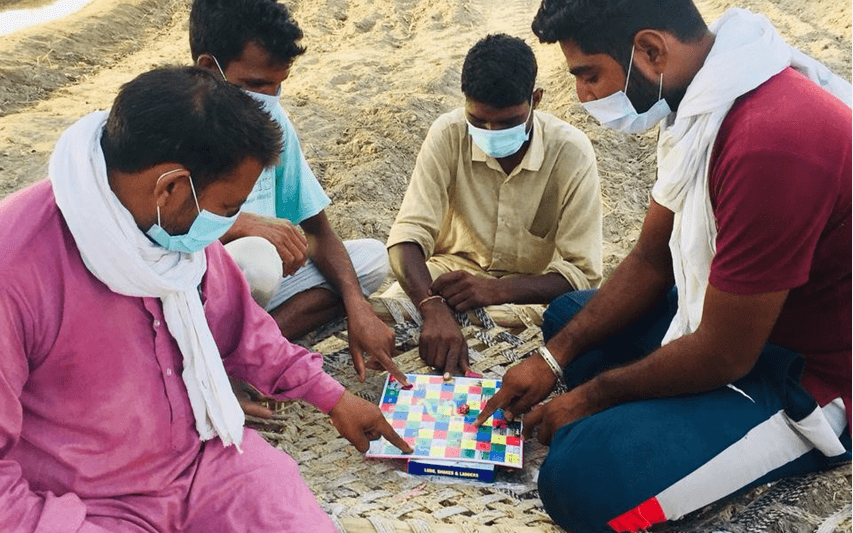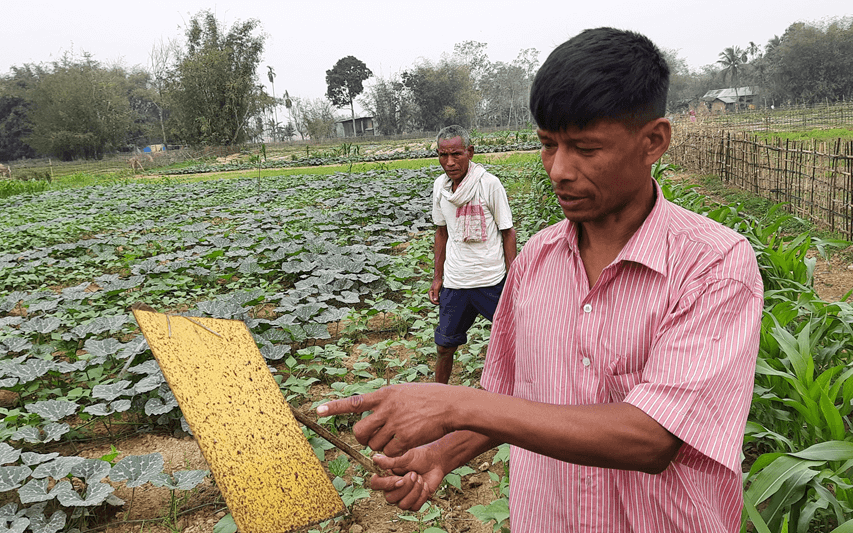Newsletter
Don't miss a thing!
We regularly provide you with the most important news, articles, topics, projects and ideas for One World – No Hunger.
Newsletter
Don't miss a thing!
We regularly provide you with the most important news, articles, topics, projects and ideas for One World – No Hunger.
Please also refer to our data protection declaration.
India, Tanzania

This project aims at developing a concept for the transmission (and repetition) of agroecological practices (Do’s and Don’ts) in a lively and conducive environment for smallholder farming families in India and Tanzania. The innovative concept involves the use of a board game integrated with supplementary information materials pertaining to agroecological practices in cotton-based farming systems. The concept places a strong focus on involvement of women and younger generation in farming decisions.
Why is it needed?
Farmers who want to transition to agroecological practices find themselves often with many questions but few answers from the traditional extension services. A good way forward is self-help, exchanging experiences and results of trials. The challenge therefor remains the perennial lack of government extension services support, and the need to reach to alternatives.
What is innovative about it?
One very promising alternative is being offered by this project. Although the use of board games to help farmers understand and learn about new practices, while collecting and exchanging information is not new, this project’s emphasis on farmer families, women and youth in the context of learning and introducing agroecological practices breaks new ground. This same approach could be applied to other crops and countries (possibly with games adapted to local cultures).
"This board game creates needed awareness and holistic understanding – which is the foundation of all other activities in the transition process from conventional to agroecological farming practices and eventually food system."
Games are known to be attractive, easy to get the family and friends together, therefore one can expect a rapid and wide adoption. Interesting and important is that the playful approach brings serious contents closer to people. Furthermore, of particular interest, are the posters, illustrating the problem and tested solutions (what worked or didn’t and why), which are drawn from farmers experience and locally adjusted, therefore relevant, and likely to be tested and adopted.
Challenges ahead
It is expected the game to be developed and tested, modifications identified in the proof-of-concept period. It will however be challenging to work in two countries. It is suggested that gender be considered throughout the project and expected that the games are really played at home the way they are intended to be played.

The School of Agricultural, Forest and Food Sciences at the Bern University of Applied Sciences (BFH-HAFL), is a research institute engaged in applied research and education geared towards current challenges faced by the farming, forestry and food sectors. In this project, BFH-HAFL oversees project implementation and monitoring, provides conceptual input and expertise in agroecology.

The Punjab Agricultural University (PAU), is one of the first and leading State Agricultural Universities in India, engaged in research, education and extension. In the context of this project, PAU develops and disseminates the board game among farmers in India.

bioRe is the quality label owned by bioRe Foundation (Stiftung) Switzerland and Remei AG is the exclusive licensee of bioRe lable. bioRe India Ltd and bioRe Tanzania Ltd are two private independent legal entities respectively in India and Tanzania. Both are daughter companies of Remei AG Switzerland as Remei AG owns both of these companies. In the context of this project bioRe India and bioRe Tanzania implement the board game on the field in India and Tanzania.

We will adapt a hive management app (The Beekeeper’s Companion) for Lebanon with a focus on women beekeepers and combine it with a web app for extension workers to improve advisory services and monitoring of bee health.

This project explores an innovative advisory model for agroecological vegetable farming based on farmer producer companies in India.

This project builds ground for the agroecological transformation of smallholder farming in Senegal following a holistic bottom-up approach.

This project is aiming to digitally empower rural youth as providers of agroecological advisory in small-scale potato farming in India.